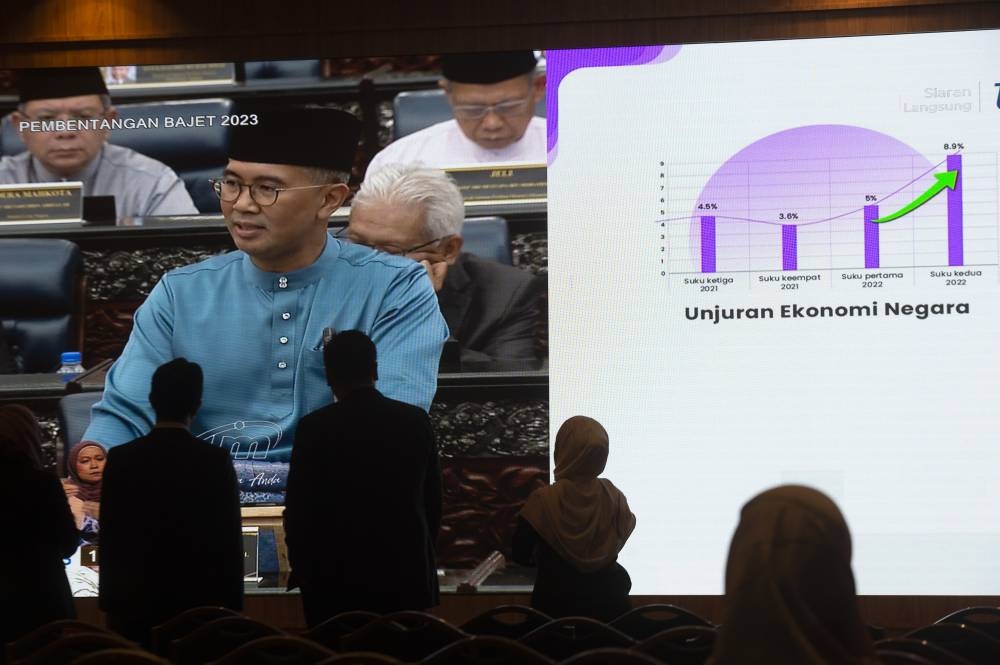Government servants watch Finance Minister Datuk Seri Tengku Zafrul Abdul Aziz speaking during the tabling of Budget 2023 in the Dewan Rakyat, October 7, 2022. — Picture by Shafwan Zaidon
Follow us on Instagram, subscribe to our Telegram channel and browser alerts for the latest news you need to know.
KUALA LUMPUR, Oct 12 — Economic reforms usually require a period longer than a year as a proper ecosystem must be established first to support the measures, said the Finance Ministry (MoF).
“Structural issues take decades to form in the economy. Therefore, reform efforts will also require time and cannot be done successfully within just a year,” it said in a statement today.
However, MoF said, various reform efforts have been started since 2020, including broadening the social security’s scope and benefits, especially for those who are self-employed or in the informal sector; adoption of environmental, social and governance (ESG) practices through government-linked investment companies; and establishment of dedicated funds by the financial sector to support efforts by the small and medium enterprises to transition to low-carbon or sustainable practices.
“For example, this year the government, through Bursa Malaysia, has kickstarted efforts to set up a Voluntary Carbon Market. Various measures have been started to encourage the usage of clean energy,” it said.
MoF also refuted the claim by certain quarters that Budget 2023 is an election Budget.
Unlike an election Budget that emphasises short-term measures, MoF said, Budget 2023 is a responsible and reformist budget that stresses the need for building resilience to weather medium- and long-term challenges despite the fiscal deficit arising from the increase in expenditure to handle the impact of the pandemic that began two years ago.
MoF said various long-term reform and sustainable development efforts have been planned for the benefit of all stakeholders, including the people, businesses, and the socioeconomic sector.
“The most important example of reform is the drafting of the proposed Fiscal Responsibility Act (FRA) to enhance transparency and accountability in fiscal management.
“This includes considering the feasibility of a statutory single debt limit as a new debt regulation and the broadening of the country’s revenue base,” it added.
The ministry said various engagement sessions have been held since the effort was announced in Budget 2021 and 2022 to ensure a comprehensive FRA is formulated and the aim to rebuild the country’s fiscal resilience to weather future challenges materialises.
On the proposed establishment of an investment fund of more than RM1 billion to attract more high value-added investments that can create professional job opportunities with higher salaries, MoF said the effort will be matched with human capital development measures that will contribute to the medium- to long-term economic reforms.
The industries, the ministry said, include electrical and electronics. The efforts include the development radio-frequency technology and Bluetooth-based applications for the automotive industry; attracting E&E sector investors to Malaysia; and medical device industry development.
“Other technology-based industries that will receive allocations include aerospace, chemicals and petrochemicals, nanotechnology, heath-tech and smart manufacturing,” it added. — Bernama



